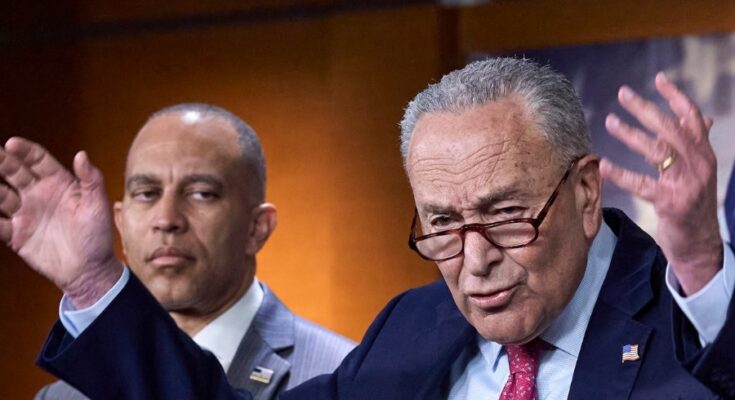
The Central Intelligence Agency (CIA) has declassified a 2015 intelligence report revealing that then-Vice President Joe Biden requested the agency not to disseminate a document detailing Ukrainian officials’ concerns about his family’s alleged corrupt business dealings in Ukraine.
The report, dated December 2015 and created in 2016, captured Ukrainian officials’ frustration over Biden’s visit to Kyiv, where they expected discussions on personnel matters but received only a generic public speech.
Following the visit, some Ukrainian officials privately expressed concerns that the U.S. Vice President’s family had ties to corruption in Ukraine, viewing it as evidence of a double standard within the U.S. government regarding corruption and political power.
CIA Director John Ratcliffe declassified the heavily redacted records, stating that this was an example of “politicization of intelligence.” A senior CIA official confirmed that Biden’s request was granted, and the intelligence report was not disseminated outside the CIA.

The official noted that it was “extremely rare and unusual” for the White House to inquire about the dissemination of a particular report for what appeared to be political reasons.
The declassified documents have reignited scrutiny over Biden’s actions as Vice President and raised questions about the extent to which political considerations influenced intelligence operations during that period.
Republican lawmakers have seized upon the declassified documents, alleging that Biden’s aides suppressed information about his family’s business ties in Ukraine to protect his political interests.
James Comer, a Republican lawmaker, claimed that the newly declassified CIA documents back GOP allegations of suppression of Biden family business ties in Ukraine.
This revelation adds to a growing body of evidence suggesting that intelligence agencies may have been used to shield the Biden family from scrutiny during the Obama administration.
The full implications of this declassified document remain to be seen, but it underscores the ongoing scrutiny of the Biden family’s foreign business dealings and the role of intelligence agencies in addressing potential conflicts of interest.
The declassification of this report has prompted calls for further investigation into the actions of the Biden administration and its handling of intelligence information.
Critics argue that the suppression of such information undermines public trust in government institutions and raises concerns about accountability and transparency.
The debate over the declassification of this report highlights the broader issue of executive power and the balance between transparency and oversight.
It raises important questions about the role of intelligence agencies in informing public discourse and the extent to which political considerations should influence the dissemination of sensitive information.
As the controversy continues to unfold, lawmakers and the public await further developments and potential investigations into the actions of the Biden administration and its handling of intelligence information related to Ukraine.

The declassification of this report serves as a reminder of the complex and often contentious relationship between politics and intelligence, and the challenges inherent in ensuring that sensitive information is handled appropriately and in the public interest.
In the coming weeks, it is expected that congressional committees will hold hearings to examine the circumstances surrounding the suppression of this intelligence report and to assess the implications for U.S. foreign policy and national security.
The outcome of these investigations could have significant ramifications for the Biden administration and its legacy, as well as for public trust in government institutions and the integrity of the intelligence community.
As the story develops, it will be important to monitor the responses of key stakeholders, including lawmakers and intelligence officials, to gauge the broader impact of this declassification on U.S. politics and governance.
The declassification of this report also underscores the importance of oversight and accountability in the intelligence community, and the need for mechanisms to ensure that sensitive information is handled responsibly and in accordance with the law.
Moving forward, it will be crucial to assess the lessons learned from this episode and to consider reforms that can strengthen the integrity and transparency of intelligence operations.
This declassification brings to light the urgent need for reform in how intelligence is protected from political interference.
Lawmakers are expected to demand greater transparency and safeguards to prevent future suppression of critical intelligence for political purposes.
The revelations further confirm concerns about the politicization of intelligence agencies during the Obama-Biden era.
Republicans and conservative commentators argue that this episode demonstrates a clear abuse of executive authority to shield political allies.
The CIA documents highlight how the suppression of intelligence can undermine national security and the credibility of U.S. foreign policy.
The declassified report has reinvigorated calls for accountability and thorough investigations into the Biden family’s dealings abroad.


